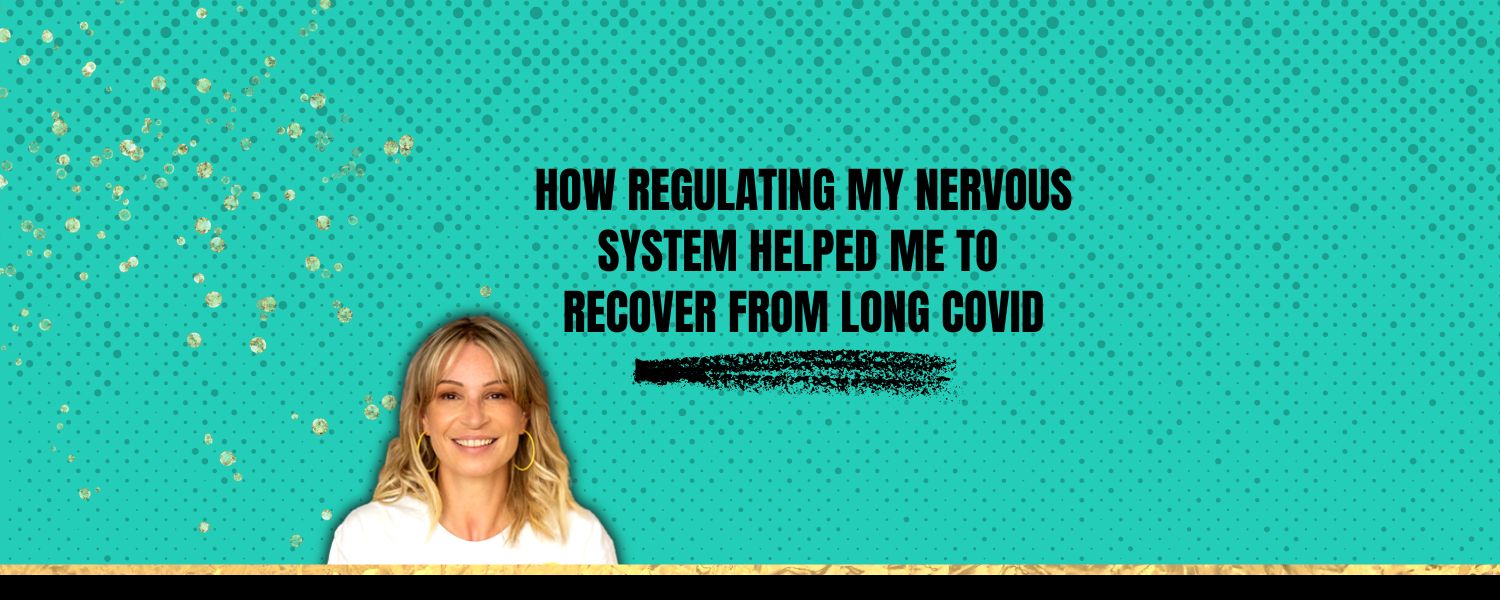
How Regulating My Nervous System Enabled me to Recover From Long Covid
Intro
In December 2020, I caught Covid. The acute phase wasn’t too bad, I wasn’t hospitalised. But about a week later, everything changed.
Suddenly, the fatigue hit. The brain fog was so severe that trying to think clearly was almost impossible (a big problem when you still have a mortgage to pay). On top of that came internal vibrations (if you know, you know), noise sensitivity (thank you, Loop ear buds), and a sudden raft of food allergies and sensitivities. Overnight I went from being a carefree eater to a neurotic one.
Fast forward: after working on regulating my nervous system, I now live with almost no limitations. I’ll share the one symptom I’m still working on further down.
Before Covid, I’d already been recovering from Chronic Fatigue Syndrome (CFS), triggered by shoulder surgery. I’d made progress, but I never felt resilient. Something was missing, I couldn’t quite put my finger on it.
What is Nervous System Regulation?
At its core, nervous system regulation is the ability to move flexibly between different states of arousal in response to stress. In a healthy system, when you face a stressful situation, your body adapts, you don’t get stuck.
When your nervous system is dysregulated, you lose that flexibility. You get trapped in a survival state.
Looking back, I realised my nervous system had been dysregulated for years. Surgery and anaesthetic was a shock to my system which tipped it over the edge. Covid was just another trigger - a strong virus, it had been seen previously with Glandular Fever and post viral fatigue. The fact that so many people developed Long Covid or post-viral fatigue shows how widespread dysregulation is. And is it any surprise in this frantic world we live in?
The autonomic nervous system interacts with every organ and system in the body. That’s why symptoms are so varied and change over time.
The “Aha” Moment
I’m not sure when I first heard the term "nervous system regulation or dysregulation" - maybe a year ago or so - but when I did, it was like everything suddenly started to make sense.
One of the commonalities people suffering from Long Covid experience, is being disconnected from their bodies. Instead they are in their head, obsessing over symptoms and trying to think their way to recovery.
There are also some other common traits such as being analytical, Type-A personalities, perfectionists, solution driven, high achievers, people pleasers, being disassociated. Also there is often a commonality with upbringing - perhaps having parents with high expectations, or who couldn't emotionally connect with us, or physical trauma as we know it such as some kind of abuse..
That was me: emotionally distant parents, high achiever, people-pleaser, always pushing myself.
So with these traits, there is a tendency to be disconnected from your body – to be honest I didn’t even really know what that meant. But actually, its about being aware of the sensations in your body and understanding the language of the nervous system.
The physical symptoms you are experiencing are actually a message from your nervous system. It is trying to tell you something, and currently you’re not listening. I know this is a difficult concept to grasp. It would have made no sense to me a year ago.
I don’t mean by this that it’s “all in your head” this isn’t about just thinking positive thoughts and magically getting better. It’s more about how your nervous system is responding to things.
A key concept that it took me a while to wrap my head around was that my nervous system was actually trying to protect me by creating these symptoms. I know it doesn’t feel protective, it feels anything but! But it was my body’s way of saying, “Hey, something’s not right here!” Understanding that helped me stop fighting against my symptoms and start working with them.
The question you need to ask yourself is ‘Does my nervous system feel safe?’ Because that is the determiner as to whether you feel well or not. Healthy people have a nervous system that feels safe. And conversely unwell people have a nervous system that doesn’t feel safe.
So, in order to recover you need to make your nervous system feel safe.
What Helped Me Heal
At first, the things I tried felt almost too small to make any difference. But the small things, done consistently, add up. .
Orienting practices: shifting attention away from my thoughts and into my body and environment. This increased my capacity to handle stress.
Somatic movements: releasing tension stored in my body after years of suppressing emotions - I wasnt really aware that this was my pattern until later in life.
Vagal toning exercises: strengthening the vagus nerve, which governs nervous system state. (I always start yawning during these, which is a good sign as it shows the parasymathetic state is being activated!)
Brain retraining: When your nervous system is stuck in a constant state of fear, you need to rewire and intervene when you are having negative thoughts or when your breathing is shallow, or your muscles are tense. It’s a process, but it’s necessary for healing. (A word of caution: if you’re very dysregulated, brain retraining can feel overwhelming, so start gently.)
All of these practices helped me shift into the parasympathetic state, the body’s “rest and repair” mode
If I’ve learned one lesson through all this, it’s the importance of acceptance. Fighting the illness, being frustrated, or angry just keeps you stuck. It’s hard to stop those feelings, I know, when you can’t do all the things you want, but accepting where you are unlocks your ability to heal.
And let's not forget mindset. Mindset is soooo important. You have to believe you can get better. And I always believed that, even in my darkest hours. And as soon as I stopped waiting for the ‘magic fix’. Things started shifting a whole lot quicker.
There’s so much information out there these days - from Facebook groups to companies offering brain retraining or somatic therapies it equally can be overwhelming. What worked for me was a combination of all techniques and approaches.
Progress
Six months of nervous system work had given me results I couldn’t have imagined before:
Social triggers: Six months ago, a busy afternoon helping a friend would have left me in bed for days. Recently, I handled a business launch and a birthday party the next day, with no crash afterwards.
Training in Barcelona: I was nervous about a week of 8 hour days training with strangers in a foreign city. Parts of it were challenging, but instead of crashing afterwards, my brain fog actually cleared completely. Several days of somatic work had helped release stored tension I didn’t even know was there.
I’m about 90–95% recovered. I still have a few triggers to work on, but the transformation has been pretty impressive.
Don't give up hope
Recovery is possible. But it takes patience, consistency, and the right approach. Start small, orienting, gentle somatic practices, rather than diving head-first into brain retraining. Build safety first.
Believe you can get better. Listen to your body. And remember: the little things, done often, are what make healing stick.


